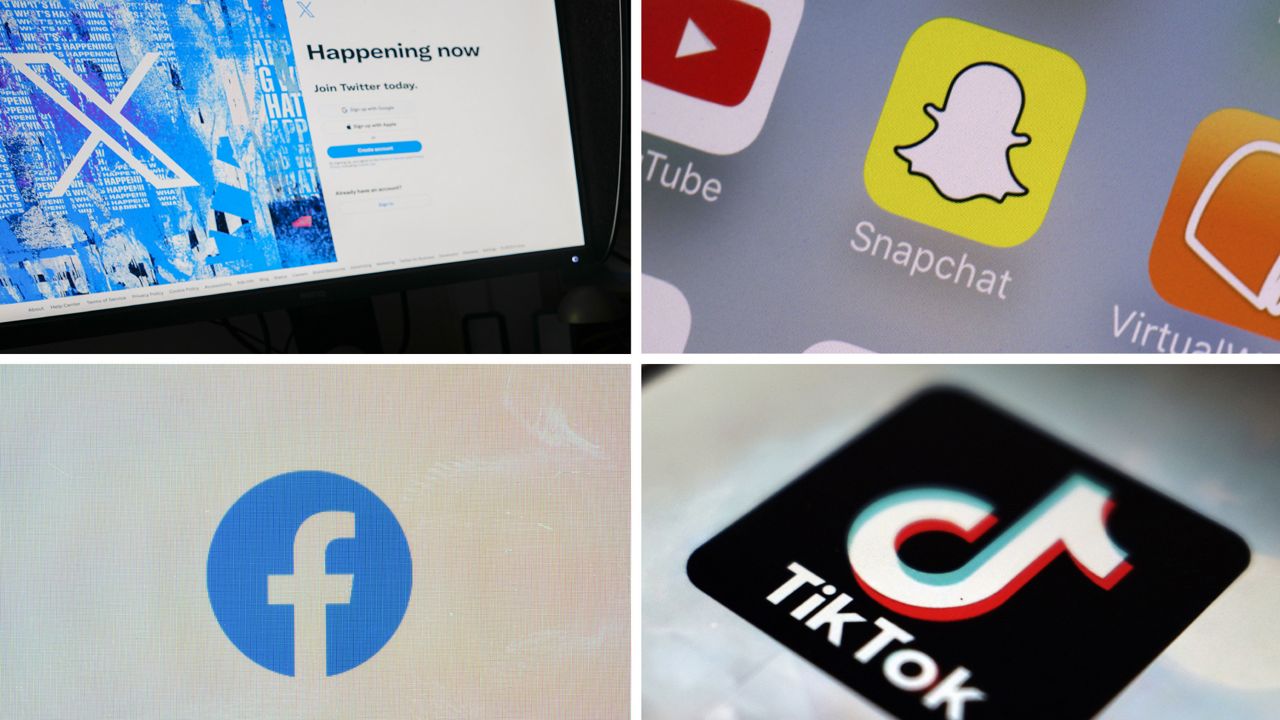As New York is slated to become the first U.S. state to regulate social media algorithms and young New Yorkers' addiction to the digital platforms, legislation amended late Monday is expected to clear the state Legislature at the end of the week to require people under the age of 18 to verify their age and mandate parental controls for minors who use the platforms.
The bill, known as the SAFE for Kids Act, would require social media companies have addictive algorithms turned off for New York users under the age of 18 — making the chronological feed the platform default for minors — unless a parent or guardian gives consent.
The other measure, called the Child Data Protection Act, would limit internet companies' ability to collect personal data from minors.
Leaders with trade group Tech NYC, who advocate on behalf of big tech companies like Google and Facebook’s parent company, Meta, and smaller internet companies question how certain provisions of the legislation will be enforced — especially the age verification requirement.
"These bills include some positive changes that will bring them closer to achieving lawmakers’ intention of protecting children online — a goal that Tech NYC and our member companies support," Tech NYC President and CEO Julie Samuels said in a statement Tuesday. "These changes signal an intention to better tailor the definition of social media and remove the private right of action.
"However, with only a few days before the end of session, neither the platforms impacted by these bills nor any of the lawmakers voting on them have any clarity on how age verification will work," Samuels continued. "Age verification is the single most important factor in determining whether this legislation will actually help kids, and the practice of punting complex issues like this to an opaque rulemaking process has proven to be an ineffective form of lawmaking."
The group will continue to push for policies that keep internet users safe, but do not require a significant overhaul of the state's technological industry or workforce, Samuels added.
The legislation was amended Monday night to remove screen time controls for minors and other small tweaks in the language, sponsor state Sen. Andrew Gounardes said.
Gov. Kathy Hochul and state Attorney General Letitia James announced it last fall together, showing unity to improve the youth mental health crisis and reduce hate crimes — areas of focus this legislative session.
Gounardes, a Brooklyn Democrat, tied it to a teenage girl who has concerns about her body image and looks up dieting tips on social media platforms.
"Maybe the first post is fine, but then, very quickly, the second, third, 40th, 50th piece of content that comes up automatically... it can be unsafe, it can be misleading and it can actually be dangerous," the senator said.
If signed into law, content-related notifications on social media apps pushed out to minors must be suspended between midnight and 6 a.m., as non-stop pings and notifications have contributed to youth mental health decline.
The state attorney general's office will release specific guidelines and regulations to implement the legislation and details of how the new restrictions will be enforced with internet companies, which lawmakers said will address critics' outstanding concerns about policy clarity.
"We know this is a first-in-the-nation effort by going after the algorithms," Gounardes said Tuesday. "We wanted to make it as tight as possible and make sure it's going to withstand legal scrutiny. We're gonna get sued. We know it, we expect it, we anticipate it."



